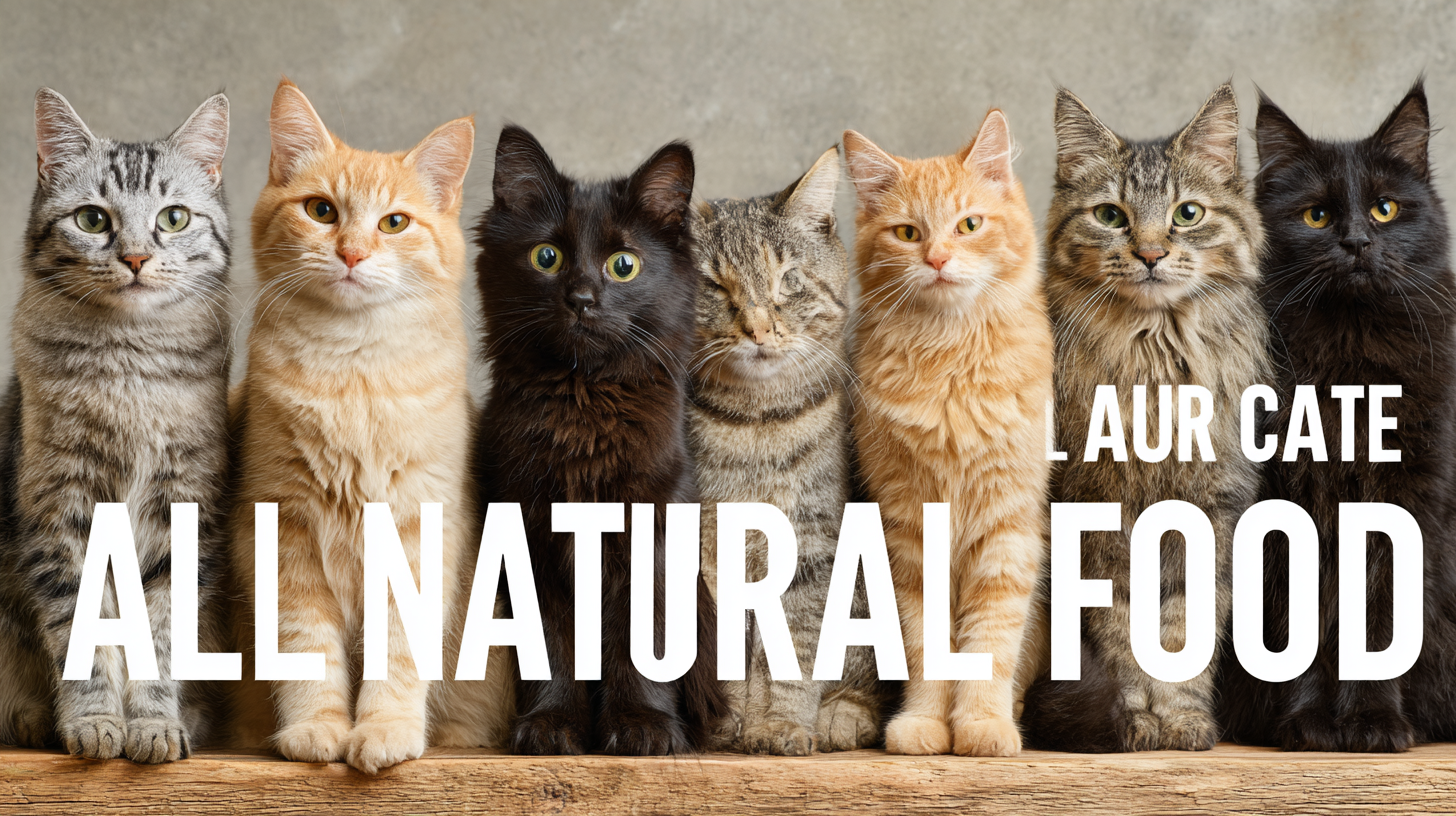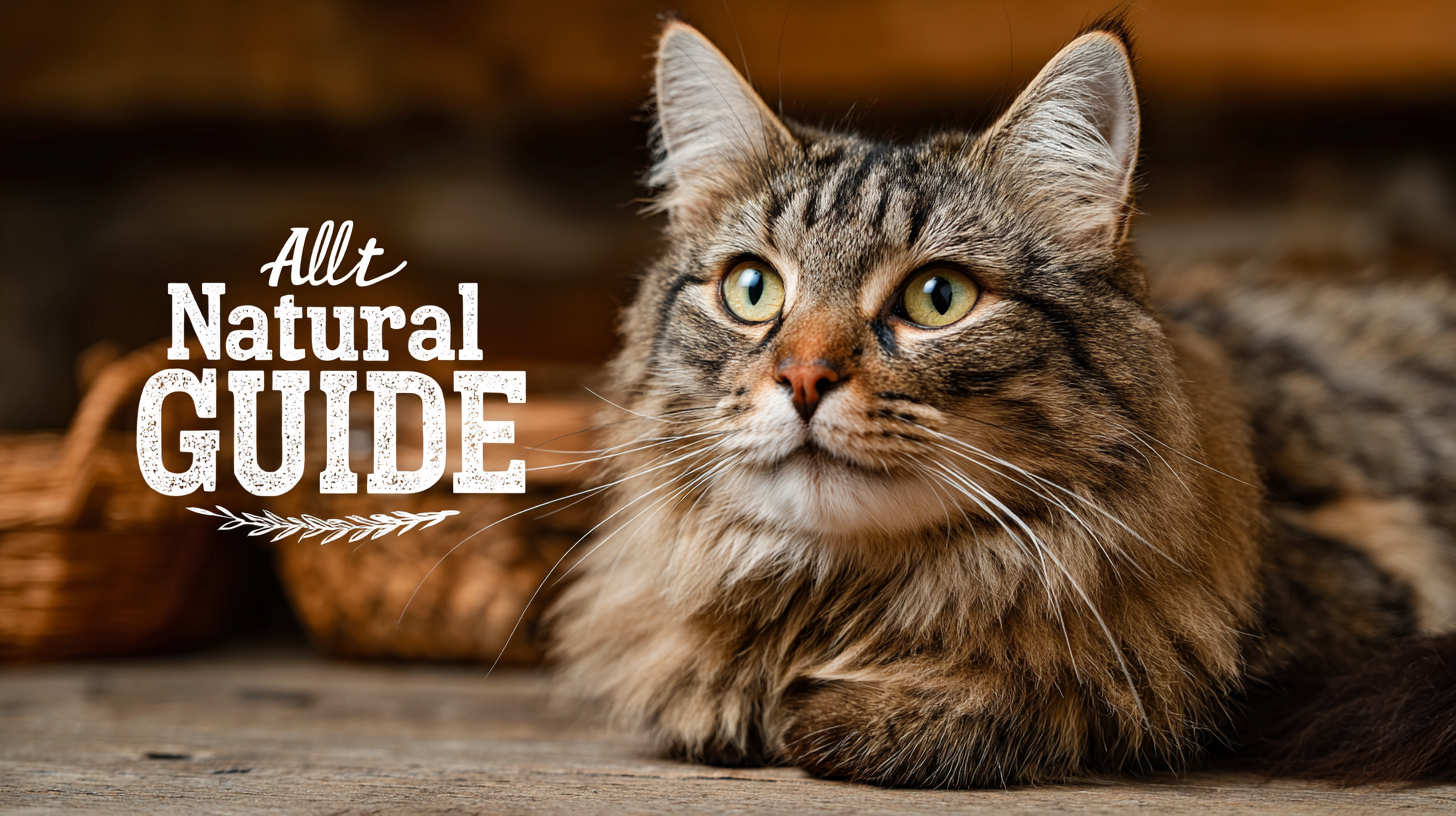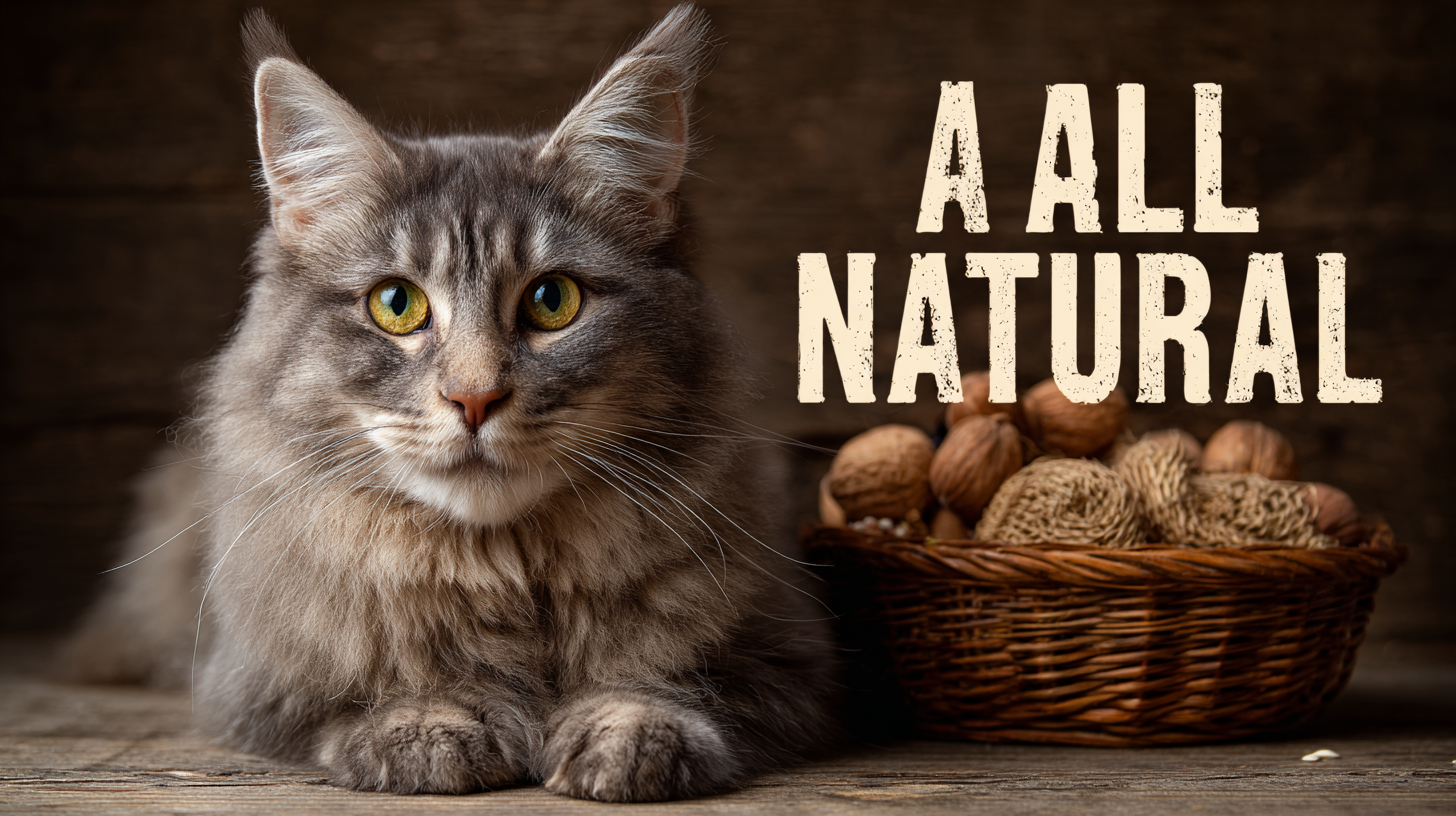The growing trend toward All Natural Cat Food reflects a shift in pet owners' priorities regarding their feline companions' health and well-being. According to a 2021 report by the American Pet Products Association, the natural and organic pet food segment is expected to grow by over 10% annually, reaching a market size of approximately $2.5 billion by 2025. This increasing demand is driven by pet owners' desire for transparency and quality in the food they offer their pets. Many consumers are seeking out products that contain no artificial preservatives, colors, or fillers, aligning with a broader movement towards cleaner, healthier diets for both humans and pets alike. As a result, selecting the right All Natural Cat Food has become paramount for responsible pet owners who want to nourish their cats with the best possible ingredients and support their overall longevity and vitality.

When selecting all-natural cat food, understanding ingredient quality is paramount. The foundation of a good diet lies in its ingredients, which should be free from artificial preservatives, colors, and flavors. Look for foods that list whole meats or meat meals as the primary ingredients, such as chicken, turkey, or fish. These proteins provide essential amino acids that are crucial for your cat's overall health. It's also important to ensure that the food includes wholesome carbohydrates and fiber sources, like brown rice or sweet potatoes, which can aid in digestion.
In addition to the primary ingredients, you should pay attention to the presence of fruits and vegetables, which can offer additional vitamins, minerals, and antioxidants. Ingredients like blueberries, carrots, and spinach can contribute to a balanced diet while supporting your cat's immune system. Moreover, avoid brands that use vague terms like "meat by-products", as they often indicate lower quality ingredients. Instead, opt for products with specific and transparent ingredient lists, ensuring that your feline friend receives the best nutrition possible.
When selecting the best all-natural cat food, it’s essential to emphasize nutritional balance. Cats are obligate carnivores, meaning their diet must primarily consist of animal-based proteins. According to the Association of American Feed Control Officials (AAFCO), a cat's diet should be composed of approximately 30-50% protein, 15-50% fat, and minimal carbohydrates. This macronutrient distribution is vital for maintaining healthy muscle mass and supporting energy levels. Additionally, micronutrients like taurine, arachidonic acid, and certain vitamins are crucial for overall health, as they play significant roles in heart health, vision, and immune function.
Tip: Always check the ingredient list to ensure that high-quality animal proteins are listed as the first ingredients, which is a good indicator of the food's protein content.
Not only should macronutrients be balanced, but micronutrients are equally important. Vitamins A, D, E, and various B vitamins contribute to vital physiological functions. A report by Pet Food Industry indicates that many commercially available cat foods lack sufficient amounts of these essential vitamins, leading to deficiencies that can affect your cat's overall well-being.
Tip: Look for products that have undergone feeding trials or come with guarantees on the nutritional adequacy based on AAFCO standards to ensure a well-rounded diet for your feline friend.

When selecting the best all-natural cat food, understanding the protein sources is crucial, especially the distinction between animal-based and plant-based proteins. Cats are obligate carnivores, meaning their bodies are designed to derive essential nutrients primarily from animal sources.
Animal-based proteins, such as chicken, fish, and beef, offer complete amino acid profiles that support your cat’s muscle strength, energy levels, and overall health. These proteins also provide vital nutrients such as taurine, which is critical for heart health and vision.
On the other hand, while plant-based proteins can complement a cat's diet, they often lack certain essential amino acids that felines need for optimal health. Ingredients like peas and lentils are becoming more common in cat food due to their high protein content; however, it’s important to ensure they don't replace animal proteins in your cat's diet.
An imbalanced ratio can lead to deficiencies and health issues. Therefore, when choosing all-natural cat food, prioritize formulas that list high-quality animal proteins as the primary ingredients to ensure your furry friend thrives on a nutritious diet.
When selecting all-natural cat food for your feline companions, it's crucial to identify common additives and preservatives that should be avoided. Many commercial cat foods contain synthetic preservatives like BHA, BHT, and ethoxyquin, which have been linked to potential health risks in pets. According to a report by the Association of American Feed Control Officials (AAFCO), these ingredients can disrupt metabolic processes and lead to long-term health issues. As a conscientious pet owner, aim to choose brands that prioritize clean, recognizable ingredients free from harmful additives.
Tip: Always read labels carefully! Look for natural preservatives like Vitamin E (mixed tocopherols) or Vitamin C, which are safer alternatives and can help extend the shelf life of your cat food without compromising your pet's health.
In addition to avoiding harmful preservatives, pay attention to fillers and artificial flavors often found in lower-quality cat foods. Ingredients like corn, wheat, and soy can lead to allergies and digestive issues in some cats. A study published in the Journal of Animal Science found that many cats benefit from high-protein diets with real meat as the primary ingredient. Therefore, seek out brands that emphasize whole food sources, ensuring that your feline friend receives the best nutrition possible.
Tip: Consider rotating different protein sources to prevent dietary sensitivities and promote a balanced intake of nutrients.
| Additive/Preservative | Description | Reasons to Avoid | Natural Alternatives |
|---|---|---|---|
| Ethoxyquin | A synthetic antioxidant used to preserve fats. | Linked to health issues, including cancer. | Mixed tocopherols, rosemary extract. |
| BHA & BHT | Butylated Hydroxyanisole & Butylated Hydroxytoluene, synthetic preservatives. | Potential carcinogens; disrupt hormones. | Natural antioxidants like Vitamin E. |
| Propylene Glycol | Used to retain moisture in pet foods. | Can cause allergies; not suitable for cats. | Natural humectants like vegetable glycerin. |
| Corn Syrup | A sweetener derived from corn. | High in sugars; can lead to obesity. | Natural fruits for sweetness. |
| Artificial Colors | Synthetic dyes added for visual appeal. | May cause allergic reactions. | Use natural sources like beet juice for coloring. |
When it comes to choosing the best all-natural cat food for your feline companions, understanding brand reputation is crucial. One of the first steps in this process is to look for key certifications that indicate a company’s commitment to quality and safety. Organizations like the Association of American Feed Control Officials (AAFCO) provide guidelines that reputable cat food brands adhere to, ensuring their products meet minimum nutritional standards. Additionally, certifications from third-party testing organizations can assure buyers that the product has undergone rigorous quality checks.
Customer reviews also play a significant role in assessing a brand’s reputation. Reading through feedback from other cat owners can provide insights into the palatability and effectiveness of a specific cat food brand. Look for reviews that highlight cats' health improvements or any adverse reactions. Engaging with community forums or social media groups dedicated to pet nutrition can also yield valuable information and recommendations. By thoroughly researching these aspects, you can make a more informed decision, ultimately leading to a healthier diet for your beloved cat.
